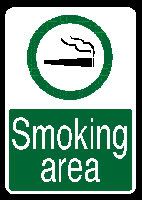This from the San Francisco Chronicle
Police can't enter a home without a warrant just because they see someone inside smoking marijuana, a state appeals court ruled Friday.
In overturning a Pacifica man's conviction, the state Court of Appeal in San Francisco said officers may enter someone's home to preserve evidence of a crime - but only if the crime is punishable by jail or prison.
Under a 1975 California law, the court noted, possession of less than an ounce of marijuana is a misdemeanor carrying a fine of as much as $100, with no jail time even for a repeat offense. That means police who see someone smoking can enter only if they have the resident's permission or a warrant from a judge, the court said.
The case dated from March 2005, when Pacifica officers came to an apartment where loud noises had been reported, smelled marijuana as they approached, and looked through an opening in the window blinds to see someone smoking what appeared to be a marijuana cigarette among a group of people.
Over the objections of John Hua, who lived at the apartment, police entered and found two marijuana cigarettes in the living room, 46 marijuana plants in a bedroom and an illegal cane sword on a bookshelf, the court said. After a San Mateo County judge upheld the search, Hua pleaded no contest to cultivating marijuana and possession of the cane sword and served a 60-day jail sentence, his lawyer said.
In defense of the search, prosecutors argued that police had reason to believe there was more than an ounce of marijuana elsewhere in the apartment - enough to subject Hua to a possible one-year jail sentence - and that Hua or others might be committing felonies by handing marijuana cigarettes to each other.
The court said the first argument was based on "mere conjecture" and the second was a misinterpretation of the law, which prescribes the same maximum $100 fine for giving away a marijuana cigarette as for smoking it. Justice Mark Simons wrote the 3-0 ruling.
The court recognized that "California's law treats possession of marijuana as the least serious crime," said Hua's lawyer, Gordon Brownell.
As West Coast coordinator for the National Organization for the Reform of Marijuana Laws, Brownell recalled, he drafted the 1975 marijuana law for then-state Sen. George Moscone, the San Francisco Democrat who later became the city's mayor and was assassinated in 1978. The law was signed by then-Gov. Jerry Brown, now the state attorney general and head of the office arguing to uphold Hua's conviction.
Deputy Attorney General Ronald Niver said he would recommend appealing the ruling to the state Supreme Court.
"It's difficult to accept the proposition that if you see marijuana in one room, you cannot draw the inference that there's marijuana in another room," he said. "It's like saying that if you see the streets are wet, you can't infer that it's raining."





















No comments:
Post a Comment